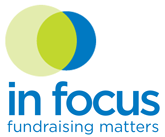Recent Posts
- Navigating 2024’s Unique Year-End Fundraising Landscape
- Latest Giving USA Data
- How to Flex Your Case for Support to Raise More Money
- Maximizing Potential of Donor-Advised Funds: Strategies You Need To Know
- Major Donors: Cultivating Relationships & Forging Strong Ties
- On Assignment in an Interim Development Role
- Planning with Intention
- Using Metrics to Understand Your Email Impact (Part 2)
Messaging Matters: Meaningful Messaging During Times Like This
By: Leila Fitzpatrick, Focus Consultant, Principle, INKWISE
June 16, 2020
What does your messaging look like these days? How has 2020 transformed your donor comms? What strategies are working? What’s making your donors feel connected—to you?
I don’t know about you but I crave and loathe the onslaught of communications more than I ever have before. One minute, I crave connection desperately. I refresh my news feeds obsessively and devour every scrap of news I can find: Covid data; BLM protests; the November election. I can’t get enough. The next moment, I’m Zoomed out and the digital deluge overloads my brain. Unable to consume another word, I dispassionately clear my inbox…
Making your voice stand out amid the constant flurry of email and social media is no easy feat, ever. But in 2020, getting through to your donors is vital to survival.
Effective Donor Communication
So, how do you communicate so you don’t fall victim to a ruthless inbox purge? How do you stay relevant when you can’t be as accessible? How do you build relationships when you can’t be out in the world? How do you get the attention you deserve, especially if you aren’t providing emergency relief or fighting for racial justice? How do you tell your story in a way that compels people to give?
Build the bond.
Most of us feel disconnected right about now. We’re craving connection. So, despite all the communication flooding our inboxes, this is the time to reach out. Just focus on the story you tell. Your message needs to be genuine. Reinforce your shared sense of purpose. Underscore why your mission is important to them—your beloved donors. Tell stories that will evoke a shared sense of purpose.
Frame the crisis within the context of your mission.
You’ll sound tone deaf if you chatter away without acknowledging the current state of the world. But everyone gets that this is an unprecedented crisis, so don’t waste space explaining what donors already know. Instead, make yourself relevant. Address the current events in the context of your mission. Focus on how the pandemic is impacting the people you serve. Are new obstacles infringing on their ability to access critical services? Are their needs going unmet because programs have been cancelled? Tell your donors what this means for the people your organization exists to serve. Share stories that demonstrate why your work is relevant—especially now.
Demonstrate agility, trustworthiness and resilience.
It’s helpful to share how recent events may have impacted your organization—in broad strokes. But don’t get in the weeds. Don’t burden them with your anxieties over payroll or lost revenue. Instead, acknowledge the key issues you face and convey your strategic approach to adapt. No one expects you to have all the answers right now. We’re all figuring this out. But you’ll build confidence by showing your donors that you’re asking the right questions and working on thoughtful, realistic solutions.
Get personal.
Numbers and stats don’t tug at heartstrings. Lure readers into your narrative. Now more than ever, when we’re all on the cusp of tuning out in the name of self-preservation, your job is to capture your donors’ attention, entice them to listen, evoke empathy—and even hope. So, focus on people. Whose life have you changed? What makes you proud to do what you do? Tell those stories.
Give your donor a story to star in.
With the amplified intensity on our doorsteps, it’s hard for any of us to know where to begin or how we can make a difference. The magnitude of problems feels immense and overwhelming. But we’re all seeking inspiration. We want to do something; to feel part of something. We crave stories of hope. So imagine how your donor will respond when you give them a chance to make a difference in someone’s life. Let your donor imagine the little girl’s smile when she rides her new bike—the bike you, donor dearest, made possible. Or, how a family can get the health care they need because of legislation you, phenomenal funder, supported. You have something your donors are craving: the opportunity to feel good about what they can do. Give your donors the gift of hope—with an extra dollop of gratitude.

